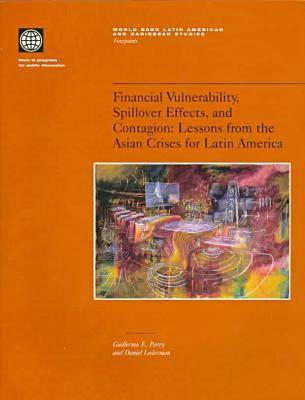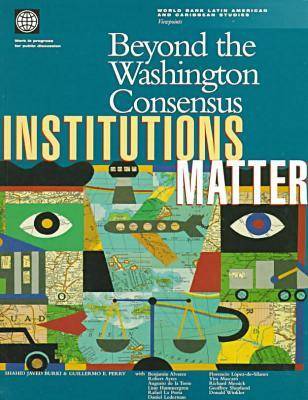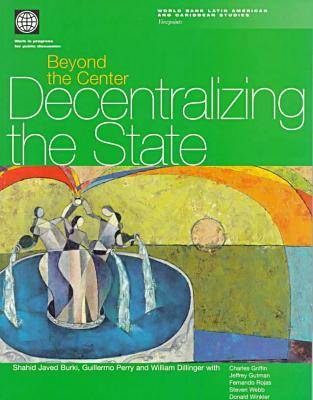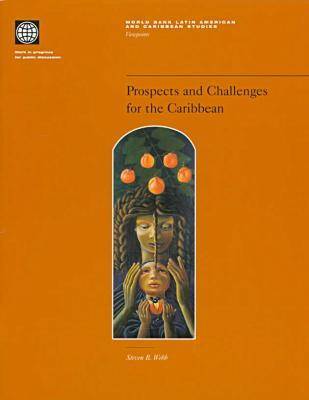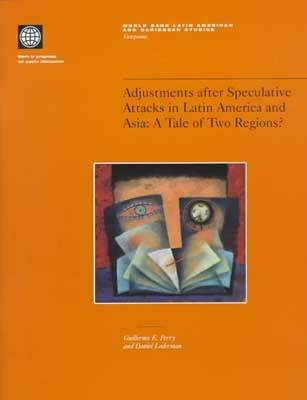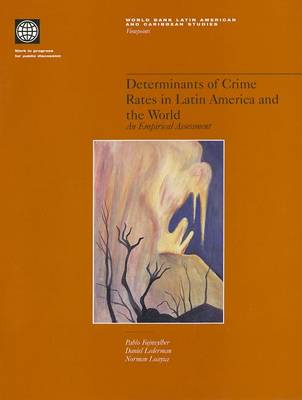World Bank Latin American & Caribbean Studies. Viewpoints
7 total works
There is already a large and growing literature about the financial crises affecting several former star economic performers in Asia. Some analysis have focused on the mismanagement of the structure of foreign debt and economic policies, while others have focused on weaknesses ingrained in the domestic financial and banking sectors of these economies. This paper attempts to reconcile these alternative explanations in a simple framework, where the causes and symptoms of "financial vulnerability" are distinguished.
This report examines the precise nature of the required institutional reforms needed to achieve higher sustained rates of growth and to make a dent in poverty reduction and provides a framework for their design and implementation. The more modest objective is to examine how the concepts of the new institutional economics are useful for analyzing and designing institutions and to evaluate how political economy concepts can be used to develop strategies for implementing institutional reforms. Employing some of these concepts, the report demonstrates that sound institutional reform can be technically and politically viable in the following key sectors: banking; capital markets and legal institutions; educational institutions; judicial reforms; and public administration.
Detailed discussion of reforms necessary to accelerate economic growth and reduce poverty in the region. Reforms include equity market development, civil service reform, in health and education investment, labor market liberalization, and greater trade openness--Handbook of Latin American Studies
'Decentralization is transforming the structure of governance in Latin America. Since 1983, all but one of the largest countries in the region have seen a transfer of power, resources, and responsibilities to subnational units of government.' This dispersion of power is a global trend due to many different political, economic, and social factors. However, as this trend continues, the importance of accountability, deciding who is responsible for what, and giving those held accountable the authority to deliver results. In light of these important issues, this report examines the impact of decentralization and its effect on the efficiency of public services, on equity, and on macroeconomic stability. It also addresses the issue of politics and notes that successful decentralization requires more than good rules. Those rules must be compatible with incentives. Therefore, the report looks at the broader set of rules that affect political behavior, focusing particularly on electoral systems and political parties.
'Many articles have been written about the causes of financial crises in emerging markets... ...Much less attention has been devoted to the effectiveness of alternative policy responses and the ensuing process of recovery of the real economy...' This paper analyzes the adjustment process in the aftermath of speculative attacks in six countries: Argentina, Brazil, Mexico, Indonesia, Korea, and Thailand. As implied by the title, the main question to be addressed is whether the tales of adjustment in these Latin American and Asian economies were similar. This comparison is interesting for several reasons. The six countries came under the aegis of adjustment programs supported by international financial institutions, and the associated policy prescriptions have been at the center of attention. Of the six cases, one is an example of a 'successful' defense of the currency, while another exemplifies a temporarily successful defense followed by an incomplete adjustment program. The others experienced dramatic currency devaluations. This small sample of episodes of adjustment also offers variety in the magnitude of the ensuing economic decline. While the Mexican and Argentine crises of 1995, and even the Brazilian adjustment after the October 1997 attack against its currency, were certainly costly, the Asian crises have been deeper and the recovery of the real economy has been slower. The paper draws policy implications for reducing the costs of the macroeconomic adjustment after currency crises.
A growing concern in most regions of the world is the heightened incidence of criminal and violent behavior, especially in the Latin American and Caribbean Region. This study uses a new data set of crime rates for a large sample of countries to analyze the determinants of national homicide and robbery rates. The authors describe a simple model of "incentives to commit crimes" by estimating several econometric models and utilizing empirical models to draw their conclusions.
